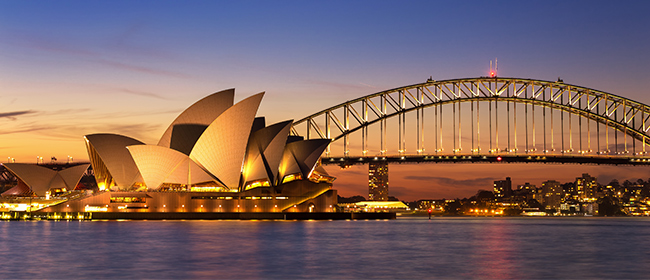Currency View by OFX


Last week’s news
- U.S. President, Donald Trump, officially signed into law the Hong Kong Human Rights and Democracy Act of 2019. Trump didn’t have a lot of choice as congress could have vetoed his veto power. China immediately responded, stating that they strongly oppose and reiterated retaliation without offering any further details. Following the bill being signed, Hong Kong protest resumed over the weekend with police firing tear gas, with Beijing arresting two overseas nationals for their alleged involvement in the protest, as reported by the Southern Daily.
- A Reuters article posted on Sunday stated, “Sources with direct knowledge of the trade talks told the Global Times on Saturday that the U.S. must remove existing tariffs, not planned tariffs as part of the deal”. Global Times is a tabloid run by the Communist Party of China’s flagship People’s Daily newspaper. Global Times said in a separate tweet that Washington’s interference in China’s internal affairs and applying pressure on the country to buy U.S. commodities could threaten the phase one deal.
- Angela Merkle’s government was thrown into crisis after Germany’s Social Democratic Party (SPD) elected new leaders who are demanding a shift to the left, putting her last two years as German chancellor at risk. Rejecting a candidacy by fiscally conservative Finance Minister Olaf Scholz, the SPD signalled they’re willing to risk a government breakup after 14 years of Merkel. Christian Democrats said no policy changes are on the table.
- European Central Bankers can breathe a little easier with the November inflation rate picking up from a three year low of 0.7% in October to 1% in November. The ECB’s monetary stimulus policy has attracted increased scrutiny over potential detrimental side effects of record low interest rates. Despite the healthy rebound, the inflation rate is still well below the ECB’s goal of just under 2%.
- The Pound rallied against the USD after a much-anticipated poll suggesting the U.K.’s ruling conservative party is set to win the December 12 election. Prime minister Boris Johnson’s party could secure a large majority of 68 seats, according to the YouGov poll, which used a technique that more closely predicted the 2017 vote than standard surveys. Markets seemingly preferred the certainty offered by a majority government, with a conservative win seen as the best outcome for those betting on pound gains according to a recent survey in Bloomberg.
- The AUD was the worst performing major currency during November, down almost 2% on the back of Governor Lowe’s comments around re-defining the lower bound for interest rates around 0.25% and how Quantitative Easing could be considered once that level is reached. ON the other hand, the kiwi was able to close the month stronger, despite the USD trading stronger versus other majors. AUDNZD is now trading around 1.0510, with next support seen at 1.0495.
Looking ahead
- China’s currency traders look to be staying on the sidelines as a U.S bill supporting Hong Kong protesters threatens to muddle the likelihood of a phase one trade deal. Yuan transaction volume was at the lowest level since mid-October on Thursday, falling 35% from the month’s peak, while implied volatility signalled near-term moves will remain subdued.
- The collapse of implied volatility in haven currencies suggests a heightened level of complacency as global share prices reach record highs. Three-month volatility in the dollar-yen exchange rate, a period that includes U.K. elections, a potential U.S-China phase one deal and major central bank decisions fell to its lowest level ever last week to 5.0625%. The waning demand for the protection offered by havens such as gold, suggests investors are confident the Federal Reserve will act as an “insurance” underwriter should financial risk emerge.
- Busy week ahead in Australia with the RBA expected to remain on hold to assess data at the board meeting tomorrow, and GDP for Q3 to be released on Wednesday. The drought remains a headwind to growth, putting upward pressures on food prices. Partial data prints contributing to GDP have come in softer than expected, with the market expecting +0.5% QoQ, taking the annual rate from 1.4% to 1.6%YoY. Today we have an update on house prices, building approvals and business indicators.
Key market events this week
- AUD Building Approvals MoM – Monday
- CNH China Caixin Manufacturing PMI (Nov) – Monday
- EUR France Markit Manufacturing PMI (Nov) – Monday
- CAD Markit Manufacturing PMI (Nov) – Tuesday
- US ISM Manufacturing (Nov) – Tuesday
- AUD Gross Domestic Product QoQ (Q3) – Wednesday
- AUD Retail Sales MoM (Oct) – Thursday
- CAD Bank of Canada Rate Decision – Thursday
- Eurozone Gross Domestic Product QoQ (Q3) – Thursday
- EUR German Factory Orders MoM (Oct) – Thursday
Disclaimer
Note that specialist Accounting, Property, Mortgage and Foreign exchange services offered by our partners, Stoneturn, OFX, Hartley’s and LJ Hooker are via referral arrangement only. Australian Expatriate Services are not responsible for any advice/services provided by these Firms.
